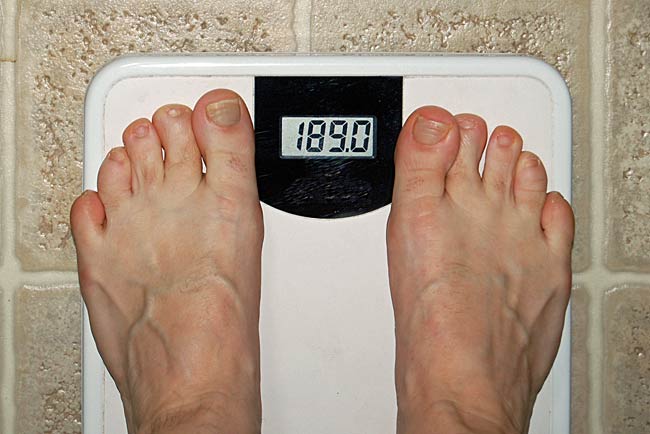Lack of Sleep in Teen Boys Linked to Obesity

Teens might be tempted to stay up late, cramming for an exam or text messaging with friends. But the lack of shut eye could lead to expanding waistlines, particularly for boys, a new study finds.
The results, based on a sample of 723 adolescents, show that the less sleep teens gets the more likely they are to be obese, at least for boys, but not girls. The relationship between less sleep and weight gain was also stronger for middle-school students than for high-school students, the researchers say.
While previous studies have shown a link between little sleep and weight gain, most have focused on either young children or adults – not teens. The current study is also one of the first to take into account other factors that could affect weight gain, such as how much adolescents ate and exercised, and whether they experienced depressive symptoms.
The findings emphasize that sleep is an important part of a healthy teenager's life, said study researcher Leslie A. Lytle of the Center for Child Health, Behavior and Development at Seattle Children's Research Institute.
"We know that our kids need to brush their teeth and wear their seatbelts and be more active," Lytle said. "I think research on sleep is now also showing that sleep is an incredibly important health behavior that has many implications beyond just being tired," she told LiveScience.
The results were presented today at the Pediatric Academic Societies (PAS) annual meeting in Vancouver, British Columbia, Canada.
Snooze log
Get the world’s most fascinating discoveries delivered straight to your inbox.
Participants with an age average age of about 15 years were recruited from around the twin city area in Minnesota. Subjects answered questions about their sleep habits on weekdays and weekends, how often they experienced sleep problems. They also reported their eating habits, which were used to measure caloric intake over three days.
Subjects also had to wear an accelerometer for one week to measure their activity level. An accelerometer measures movement in the side-to-side, up and down directions. Unlike a pedometer, which counts steps, participants who wear an accelerometer don't know how much they're moving around.
Throughout the study, researchers measured the participants' weight, percent of body fat and body mass index, or BMI, a ratio of a person's height and weight. While BMI is considered an indicator of body fat, it is not always accurate. For instance, someone who is muscular yet lean might be found to have a high BMI, even though they are actually in good shape. For this reason, body fat measures are considered a better indicator of disease risk, Lytle said.
The results showed that as sleep hours decreased, teens had a higher body fat percentage and BMI for boys, but not girls. The reverse was also true, more sleep was linked to a lower body fat percentage and BMI for boys.
"Higher levels of sleep seemed to be a protective factor against excess body fat as well as a higher BMI," Lytle said.
The sleep-weight connection was also more robust for those in middle school, indicating that by high school, participants' bodies may be better adapted to less sleep, Lytle said.
Why is less sleep bad for boys?
Scientists aren't sure how less sleep leads people to pack on pounds, but there are three main ideas to explain the connection, Lytle said.
- If you sleep less, you are more tired, and hence less active
- More time awake means more time to eat
- Less sleep influences hormones that act to regulate appetite
Lytle's study is one of several to find an association between less sleep and obesity risk only in boys. This finding may be due to some innate predisposition in girls to better handle this type of stress.
"Girls may be better suited to deal with environmental stresses, and if you think about lack of sleep as an environmental stress, girls handle that better metabolically so that their body does not respond by putting on weight," Lytle said.
More research is needed to look at the link between sleep amount and weight gain over a long period of time, and in a wider population sample, the researchers say.
- Top 5 Things You Must Know About Sleep
- Top 10 Spooky Sleep Disorders
- 3 Simple Steps Can Cut Childhood Obesity

Rachael is a Live Science contributor, and was a former channel editor and senior writer for Live Science between 2010 and 2022. She has a master's degree in journalism from New York University's Science, Health and Environmental Reporting Program. She also holds a B.S. in molecular biology and an M.S. in biology from the University of California, San Diego. Her work has appeared in Scienceline, The Washington Post and Scientific American.
 Live Science Plus
Live Science Plus





